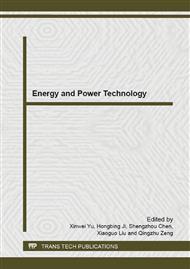p.1240
p.1250
p.1257
p.1265
p.1269
p.1278
p.1283
p.1291
p.1297
Research on Hydrocracking Reaction Conditions of Heavy Polycyclic Aromatic Hydrocarbon
Abstract:
By using heavy polycyclic aromatic hydrocarbon from a factory in Northwest China as raw material and 6% Ni/USY as catalyst, a study on hydrogenation process is carried out with a high-pressure hydrocracking assessment device, which mainly focuses on investigating the effect of LHSV, oil hydrogen ratio, temperature and pressure on heavy polycyclic aromatic hydrocarbon. Experimental results show that under the condition that the optimum LHSV is 3.0 h-1 and the ratio of oil to hydrogen is 600, both conversion rate of heavy components and yield of one-membered ring increase at first and then decrease with reaction temperature, with the peak value of conversion rate at 320°C and yield peak at 340°C. Though fluctuates with the increase of pressure, but conversion rate of heavy components shows an overall upward trend. Yield of one-membered ring increases at first and then decreases with pressure, and eventually tends to stabilize. When the temperature is greater than 300°C, the yield slightly fluctuates with pressure and shows an overall increasing trend.
Info:
Periodical:
Pages:
1269-1277
Citation:
Online since:
September 2013
Authors:
Price:
Сopyright:
© 2013 Trans Tech Publications Ltd. All Rights Reserved
Share:
Citation:


